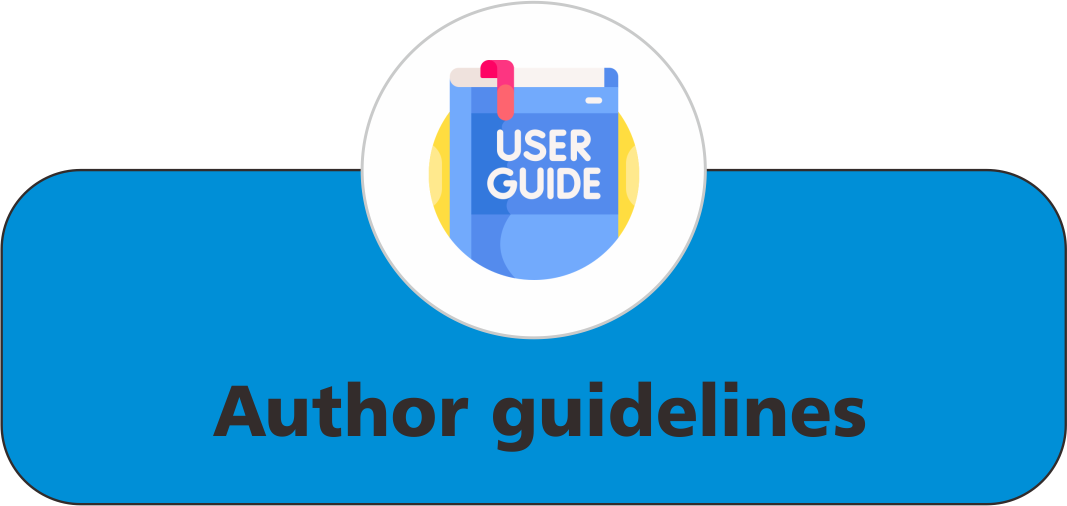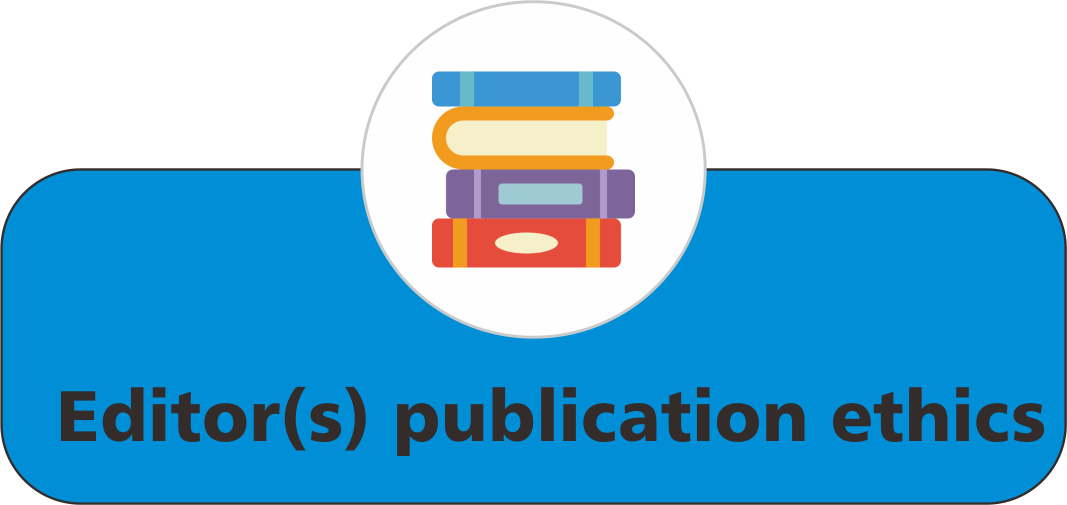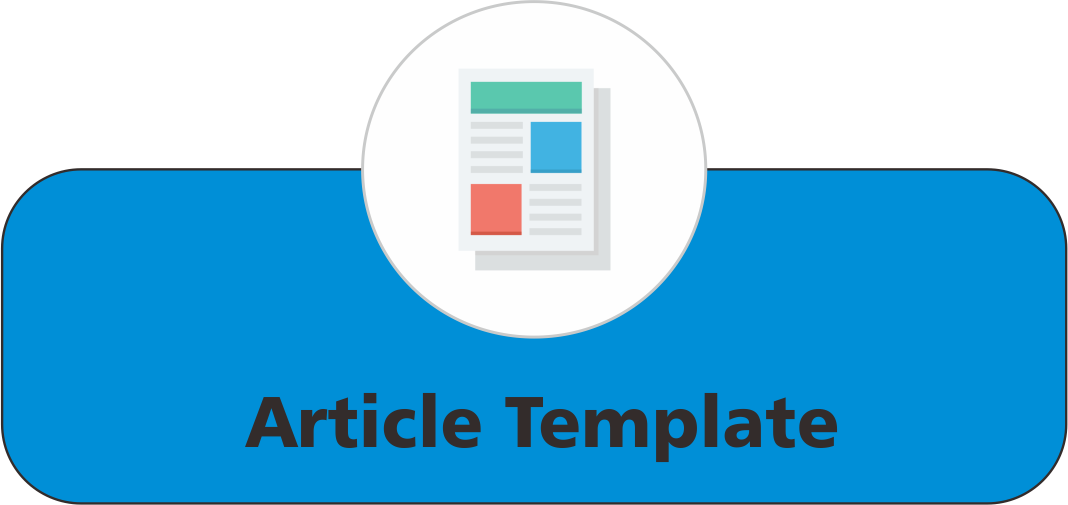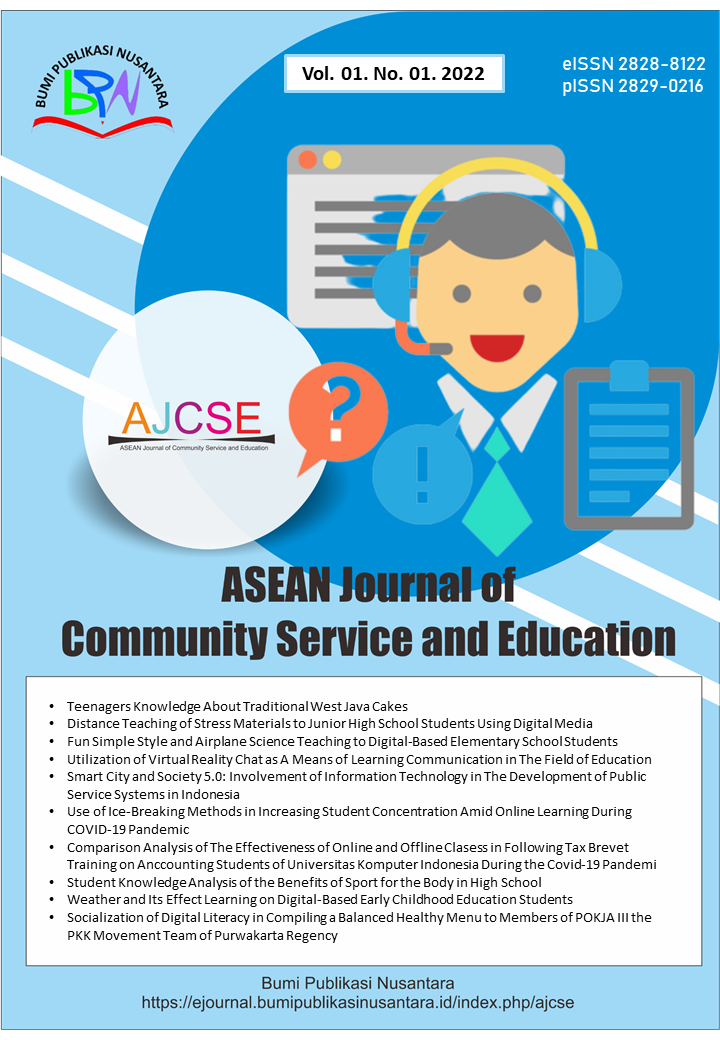Gender as a Predictor of Students’ Performance in Physics Education Technology Simulation of Chemistry Content as Community Service in Secondary Schools
 ), Abiola Tawa Ahmed(2), Abdulmuhsin Ibrahim(3), Fatima Kemi Jimba-Na’Allah(4), Waheed Tunde Oyeyemi(5), Rahmat Bolatito Hassan-Ibrahim(6), Bolanle Tawakalt-Anu Abdulazeez(7), Aindeyi Luwoye(8),
), Abiola Tawa Ahmed(2), Abdulmuhsin Ibrahim(3), Fatima Kemi Jimba-Na’Allah(4), Waheed Tunde Oyeyemi(5), Rahmat Bolatito Hassan-Ibrahim(6), Bolanle Tawakalt-Anu Abdulazeez(7), Aindeyi Luwoye(8),
(1) Al-Hikmah University
(2) Al-Hikmah University
(3) Al-Hikmah University
(4) Al-Hikmah University
(5) Al-Hikmah University
(6) Al-Hikmah University
(7) Al-Hikmah University
(8) Al-Hikmah University
 Corresponding Author
Corresponding Author
Abstract
Keywords
References
Ajijolajesu, J. K., Nsofor, C. C. and Umeh, A.O. (2019). Impact of interactive simulations on secondary school Chemistry students’ learning outcome in Abuja Municipal area council. Conference Proceedings of the AITIE 3rd International Conference and Workshop on Innovation, Technology and Education, 16(3), 2636-5626.
Anwer, F. (2019). Activity-based teaching, student’s motivation and academic achievement. Journal of Education and Educational Development, 6(1), 154-170.
Dodd, E., Singh, S., Micsko, J., Austin, K., Morison, C., and Upton, S. (2021). Equalizing and widening access to higher education during a pandemic: Lessons learned from a multi-university perspective. Student Success, 12(3), 58-72.
Erdem, A. (2019). A study on teachers' views on the use of technology to improve physics education in high schools. Journal of Education and Training Studies, 7(4), 142-153.
Fauth, B., Decristan, J., Decker, A. T., Büttner, G., Hardy, I., Klieme, E., and Kunter, M. (2019). The effects of teacher competence on students’ outcomes in elementary science education: The mediating role of teaching quality. Teaching and Teacher Education, 86, 102882.
Fernandes, E., Holanda, M., Victorino, M., Borges, V., Carvalho, R., and Van Erven, G. (2019). Educational data mining: Predictive analysis of academic performance of public-school students in the capital of Brazil. Journal of Business Research, 94, 335-343.
Fryer, L. K., and Leenknecht, M. J. (2023). Toward an organising theoretical model for teacher clarity, feedback and self-efficacy in the classroom. Educational Psychology Review, 35(3), 68.
Gultom, S., and Oktaviani, L. (2022). The correlation between students' self-esteem and their English proficiency test result. Journal of English Language Teaching and Learning, 3(2), 52-57.
Ibe, N., Maxwell, O. and Chikendu, R. (2021). Effect of improvised instructional materials on Chemistry students’ academic retention in secondary school. International Journal of Research in Education and Sustainable Development, 1(5), 19-31.
Kim, L. E., Dar-Nimrod, I., and MacCann, C. (2018). Teacher personality and teacher effectiveness in secondary school: Personality predicts teacher support and student self-efficacy but not academic achievement. Journal of Educational Psychology, 110(3), 309.
Kim, M. M., and Kutscher, E. L. (2021). College students with disabilities: Factors influencing growth in academic ability and confidence. Research in Higher Education, 62, 309-331.
Kumar, S., Agarwal, M., and Agarwal, N. (2021). Defining and measuring academic performance of Hei students an artificial review. Turkish Journal of Computer and Mathematics Education (TURCOMAT), 12(6), 3091-3105.
Minh, N. T., and Van Hoi, H. (2023). Factors affecting students’ academic achievement: A study of Universities in Hanoi, Vietnam. Journal of Research Administration, 5(2), 8232-8241.
Nnanna, I. F., and Chukwunazo, O. M. (2021). Comparative effects of teaching with improvised instructional materials and standard instructional materials on secondary school students’ academic achievement in Chemistry. International Journal of Research in Education and Sustainable Development, 1(8), 18-81
Nnoli, J. N., and Nwafor, S. C. (2023). Examining the influence of audio-visual materials on Chemistry students’ interest in learning Chemistry in Awka education zone, Anambra State, Nigeria. UNIZIK Journal of STM Education, 6(1), 26-34.
Olufemioladebinu, T., Adediran, A. A., and Oyediran, W. O. (2018). Factors influencing the academic achievement of students in colleges of education in southwest, Nigeria. Journal of Education and Human Development, 7(3), 109-115.
Ononye, F. O., and Obiakor, M. I. (2020). Factors responsible for mass failures in economics in senior secondary schools (SSCE) examination in Enugu educational zone. UNIZIK Journal of Educational Research and Policy Studies, 1, 90-107.
Ouahi, M. B., Hou, M. A., Bliya, A., Hassouni, T. and Ibrahmi, E. A. (2021). The effect of using computer simulation on students’ performance in teaching and learning Physics. Hindawi Education Research International, 20(10), 6646017.
Rilwanu, Y. M., Oche, D. S., and Ehada, M. I. (2019). Students’ performance in higher institutions depends on their o-level result at the Department of hospitality management of Nasarawa State Polytechniques, Lafia. Abacus Mathematics Education Series, 44(1), 509-517.
Rodríguez-Hernández, C. F., Cascallar, E., and Kyndt, E. (2020). Socio-economic status and academic performance in higher education: A systematic review. Educational Research Review, 29, 100-305.
Stone, D. C. (2021). Student success and the high school-University transition: 100 years of Chemistry education research. Chemistry Education Research and Practice, 22(3), 579-601.
York, T. T., Gibson, C., and Rankin, S. (2019). Defining and measuring academic success. Practical Assessment, Research, and Evaluation, 20(1), 5.
Article Metrics
Abstract View : 296 times
: 296 times Download : 117 times
Download : 117 times
Refbacks
- There are currently no refbacks.
Copyright (c) 2025 Bumi Publikasi Nusantara

This work is licensed under a Creative Commons Attribution-ShareAlike 4.0 International License.







